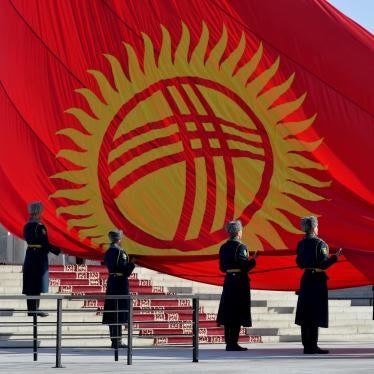On September 17, a court in Kosovo acquitted Fatmir Limaj, a former Kosovo Liberation Army (KLA) commander and high-ranking politician, and nine others of war crimes related to the 1998 torture and killings of Serbian and Albanian civilians in a makeshift detention center in Klecka village. The court confirmed that abuses took place in Klecka, and that seven Serbian men were unlawfully killed, but it found Limaj and the others not guilty of those crimes.
This is the second time that a Kosovo court has considered these charges. The first trial was shaken in late 2011 when the key insider witness for the prosecution – former KLA member Agim Zogaj, who had kept a diary on alleged war crimes by the KLA – was found dead, hanging from a tree in a park in Germany, in what the police called a suicide.
Zogaj’s diary was ruled inadmissible as evidence because he could not testify to its authenticity. Limaj was then acquitted in May 2012. An appeals court reversed that decision and the case went for retrial in November 2012.
In this week’s verdict, the panel of two judges from the European Union Rule of Law Mission in Kosovo (EULEX) and one Kosovar judge ruled that Zogaj’s diary contained inconsistent and contradictory information, rendering it unreliable.
The case illustrates weaknesses in Kosovo’s witness protection program and the ongoing challenges to prosecute crimes committed during and after the war.
The relatives of the Klecka victims and others on all sides deserve justice. These nine men have been acquitted, so who committed this crime? It is the responsibility of the Kosovo prosecution office and EULEX to determine this without delay.







